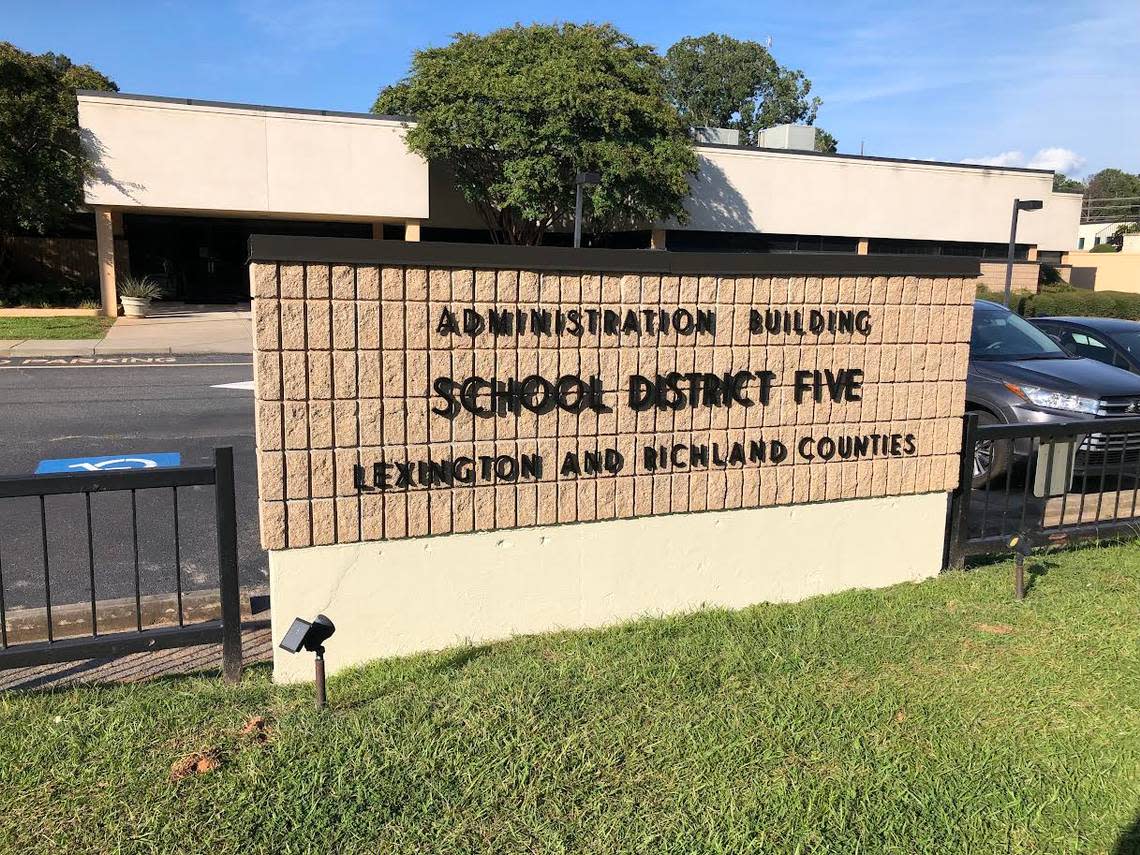A new school and more: What $239M bond could bring to Midlands school district, if voters say OK

As the stretch of Lexington and Richland counties along Interstate 26 continues to blossom with new development, the local school district has struggled with how to accommodate a growing student body.
Residents of the Lexington-Richland 5 district, which covers the Chapin and Irmo areas, likely will be asked to approve a new bond referendum this year to pay for a slate of projects, including the construction of a new school, other new facilities and a host of classroom renovations.
The district school board reviewed several project proposals this week but did not set a final list or approve a referendum date. Instead, Superintendent Akil Ross said he expects many more weeks of review before a final decision is taken.
But Monday’s discussion highlighted several possible improvements new bond spending could make in the district, totaling $239 million.
Among the top items on a potential bond list would be construction of a new Dutch Fork Elementary School, at an expected cost of $41.4 million. The school district would then renovate the current elementary school on Irmo’s Broad River Road into a learning center, at a cost of another $2.6 million.
Other projects likely to get attention are additional wings to Chapin Elementary and Lake Murray Elementary (a combined $14 million), classroom renovations at Harbison West and Nursery Road elementaries ($12 million each), and improvements to the district administration building ($25 million), which previously had to move staff because of an outbreak of mold.
Several schools would receive new amenities from the bond issue:
A digital solutions and artificial intelligence lab at Dutch Fork High School that would cost $800,000;
A construction and infrastructure workforce development lab at the Center for Advanced Technical Studies at $10.5 million;
$30 million for a small business incubation center at Irmo High School;
And a $21 million fine arts center/auditorium at Chapin High School.
All three high schools would receive climate-controlled sports practice facilities ($13.8 million total), and nine schools would receive various other renovations totaling almost $40 million.
About $5 million could be spent across the district for new security features, including cameras and new “vestibule” entrances where visitors would come into any school through a secured entrance room that would remain secured from the rest of the building until a visitor is cleared.
“Our plan is to ‘fix and fill’ without increasing the tax rate,” Ross said, adding he hopes to have a final decision on a project list by the school board’s May 20 meeting.
Earlier Monday night, the school board approved a lower $15 million bond issue, which Lexington-Richland 5 can issue without breaching its debt limit or requiring a public referendum. That bond money will go toward various capital projects including roof repairs and other maintenance, dealing with mechanical, electrical and plumbing issues, interior furniture and flooring replacements, security and technology upgrades and paving, groundskeeping and sports fields upgrades.
Even approving a relatively small bond issue was still contentious, with some board members reluctant to take on the additional spending. Board member Catherine Huddle asked to defer any action until the board could review a detailed list of each school’s requests for bond spending, a list Ross said would run to more than 11,000 items.
Board member Mike Satterfield, a former principal at Chapin High School, said the schools used to agree to a combined funding request among themselves before asking the school board.
“They used to put all the principals in the room to hash it out, didn’t we Dr. Ross? And it was not a fun afternoon,” Satterfield said.
The board narrowly rejected the request for a deferral on an 4-3 vote, with Satterfield, Rebecca Blackburn Hines, Kevin Scully and Kimberly Snipes voting to bring the request to a vote. Huddle, Elizabeth Barnhardt and Mike Hogan voted to defer.
The board ultimately approved the $15 million bond issue by a 5-0 vote, with Barnhardt and Huddle abstaining.


